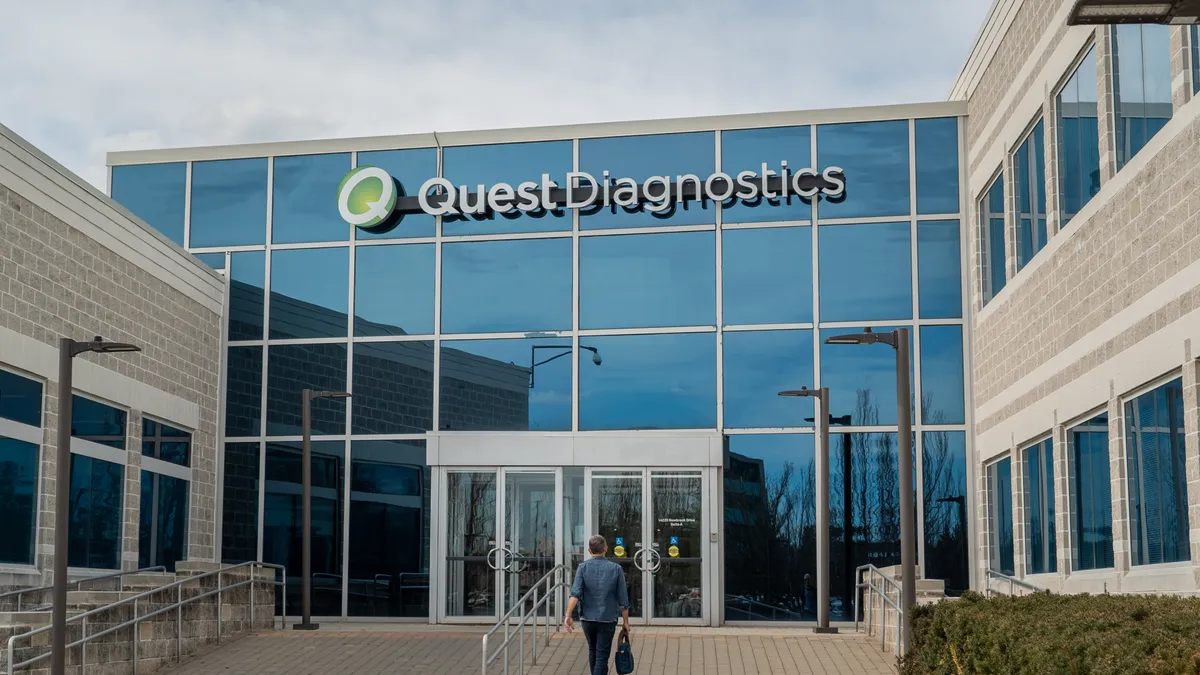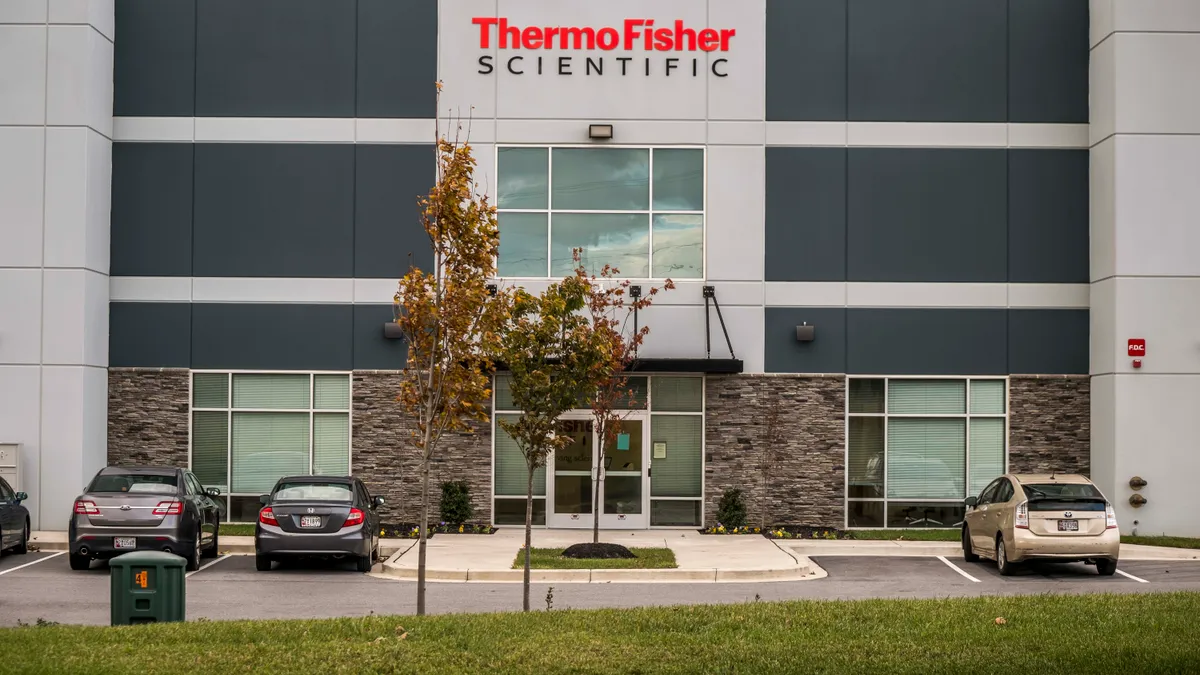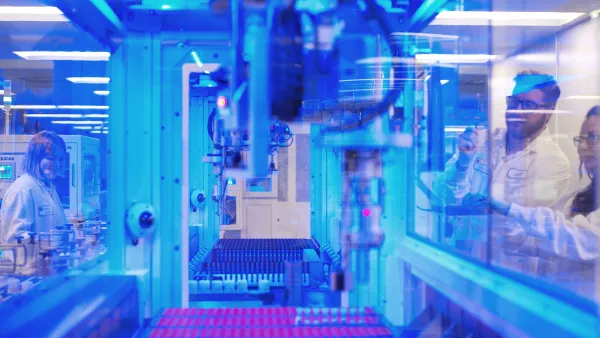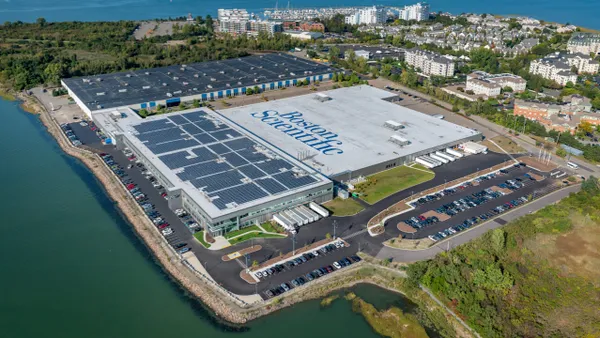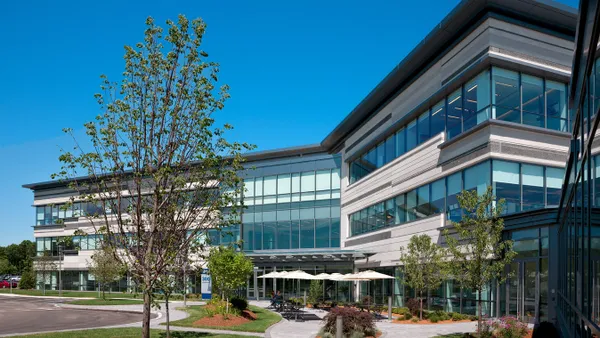Quest Diagnostics on Thursday said it agreed to pay up to $450 million to acquire Haystack Oncology, an early-stage company focused on liquid biopsy testing to detect residual or recurring cancer.
The announcement came as Secaucus, N.J.-based Quest reported a 10.7% drop in first-quarter revenue to $2.33 billion, compared to a year ago, on a faster-than-expected decline in COVID-19 testing as the public health emergency approaches an end.
Revenue in Quest’s base business excluding COVID testing rose 10% to $2.21 billion, bolstered by strong volume growth across customer types, CEO James Davis said on the company’s earnings call.
“We saw faster growth in a number of tests per requisition across a broad range of clinical test categories. This suggests more people are returning to the healthcare system for routine care, after delaying care during the pandemic,” Davis told analysts.
Haystack acquisition
In addition to paying $300 million in cash for Haystack, Quest agreed to $150 million in milestone payments based on the cancer testing company achieving future performance goals.
A liquid biopsy is a blood test that detects cancer cells or DNA circulating in the blood.
Haystack was founded by Dr. Bert Vogelstein and his team at Johns Hopkins University. Its liquid biopsy technology is based on more than two decades of pioneering research that aims to help inform clinical interventions and create customized treatment plans for patients with cancer, Quest said.
Davis, on the earnings call, said the Haystack assay is able to find one fragment of cancer DNA per a million parts. “That is an incredibly low limit of detection,” he said.
Quest selected Haystack after holding “many discussions with many of the players” pursuing minimal residual disease (MRD) testing, Davis said.
“We think it’s a best-in-class assay,” he said. “Haystack’s liquid biopsy technology, combined with our strengths in screening, pathology and sequencing, will now position us to play a leading role in the fast-growing MRD category.”
The company expects to focus initially on colorectal, breast and lung cancers.
The acquisition is expected to be slightly dilutive to earnings per share over the next three years and accretive to earnings by 2026, Quest CFO Sam Samad said on the earnings call. “We anticipate Haystack oncology to begin contributing revenue in 2024 and to have a positive ROIC [return on invested capital] by the end of 2025,” Samad said.
Q1 insights
Quest reported first-quarter earnings of $202 million, a decline of 43% from the year before. The company’s per-share profit of $1.78 was down from $2.92 a year ago. Adjusted earnings were $2.04 per share, down from $3.22.
Outlook
For the full year, Quest expects revenue between $8.93 billion and $9.08 billion, with reported earnings per share between $7.52 and $8.02 and adjusted EPS between $8.45 and $8.95.
Shares of Quest fell $4.24, or 2.89%, to $142.60 in morning trading Thursday.

